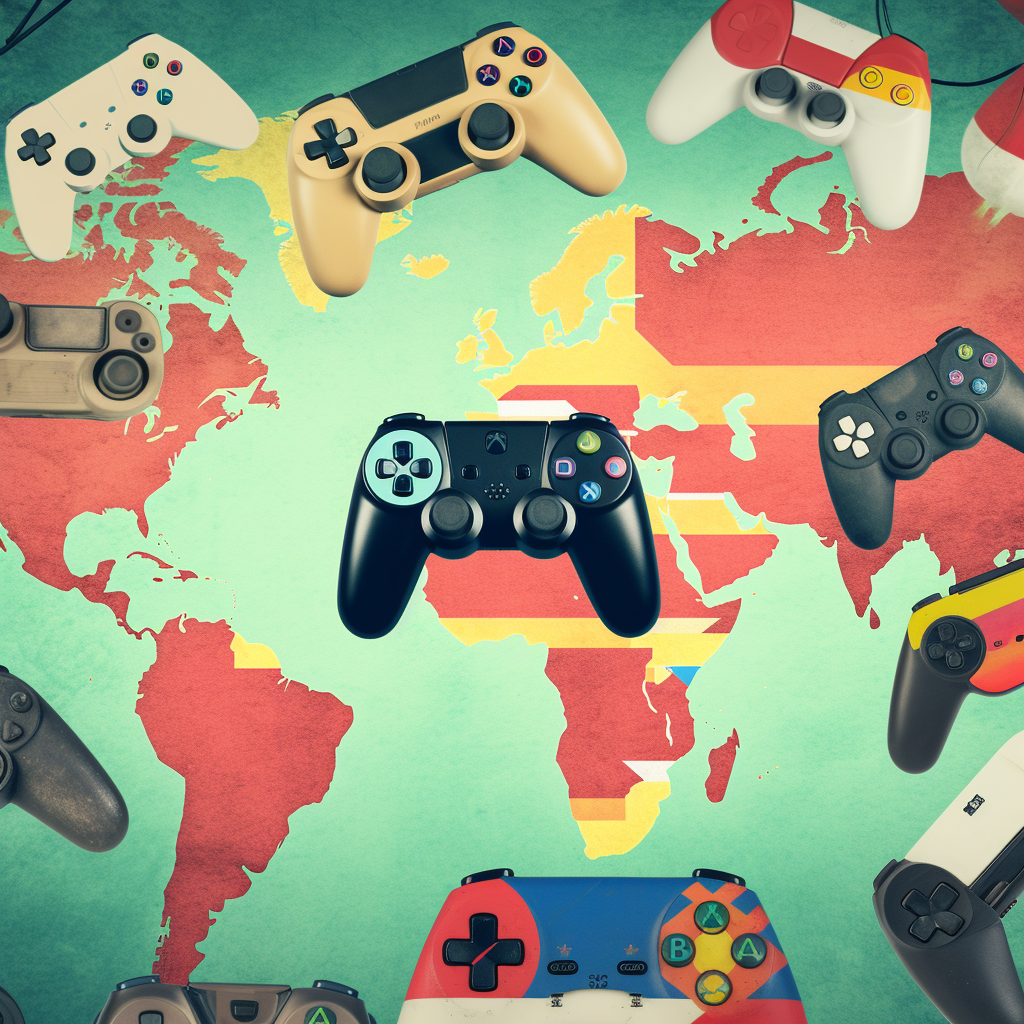Video games are a part of everyday life for millions of people around the world. From high-energy action and adventure experiences to more gentle exploration titles, video gaming has come a long way from its humble origins in the late 1970s. While most countries now accept video gaming as an entertainment form, some have gone so far as to ban them altogether. In this article we’ll look at how and why certain nations or regions prohibit video games, what effects these bans have had on gamers within those areas, and whether any progress is being made toward allowing access again to these interactive entertainment forms.
A Global Overview of Countries Banning Video Games
Video games have always been a topic of controversy, and as gaming continues to evolve, so do the debates surrounding them. Recently, several countries have taken a firm stance on video game censorship, leading to an increase in the number of nations banning video games. Some countries justify this action by citing violent content, while others claim that certain games promote an unhealthy lifestyle. While the pros and cons of video games are still under scrutiny, it remains to be seen if more countries will follow suit and impose stricter regulations on the gaming industry. Clearly, this is an issue that won’t be going away anytime soon.
The Reasons Behind Video Game Bans in Certain Countries
Video games have become more popular than ever, with millions of people enjoying them around the world. However, not all countries embrace these games, and several have even introduced bans on certain titles. The reasons behind these bans can vary, with some countries citing concerns about violence, explicit content, or religious beliefs. In China, for example, the government has implemented strict guidelines to ensure that video games do not violate their socialist values or harm national unity. Saudi Arabia, on the other hand, has banned several video games deemed to be against their religious beliefs, including Pokemon GO. As the video game industry continues to evolve, it is likely that more countries will consider regulating or even banning certain titles based on their own cultural and societal values.
The Range of Penalties for Violating Video Game Bans
When it comes to violating video game bans, the range of penalties can vary depending on the severity of the offense. Some penalties may include a warning or temporary suspension, while more severe violations can lead to permanent bans and even legal consequences. Online gaming platforms often have strict rules and regulations in place to ensure fair gameplay and ensure the safety of all users. It’s important to familiarize yourself with these guidelines and abide by them to avoid any undesired consequences. So, before you hit that “play” button, take some time to educate yourself and understand the rules of the game.
Understanding Why Some Governments Ban Video Games
Video games have become an integral part of our lives, offering entertainment, education, and even therapeutic benefits. However, there are countries that have decided to ban certain video games or restrict their usage altogether for reasons ranging from violence to addictive behavior. Understanding why some governments take such measures requires analyzing the country’s cultural, political, and social landscape. For instance, in China, video games are governed under strict regulations that prioritize social harmony, and any games that deviate from the guidelines are banned. Similarly, in Saudi Arabia, games that depict violence, gambling, and nudity are prohibited to comply with Islamic values. With so much at stake, it is crucial to evaluate the specific reasons why video games are banned in a particular country and engage in constructive dialogues to address these concerns.

Examining the Impact of Video Game Bans on Gaming Culture
Throughout the years, there have been various calls to ban certain video games due to their content. Some critics have argued that video games contribute to a culture of violence and addiction, leading to demands for government regulation. These calls for bans have sparked a broader conversation about how video games impact our society, and whether they have any negative consequences. But what is the actual impact of these bans on gaming culture? While bans may limit access to certain games, they also generate negative reactions from gamers who feel that their rights are being restricted. Moreover, it is unclear whether such bans actually have any significant effect on the incidence of violence or addiction. Overall, examining the impact of video game bans on gaming culture is a complex and multi-faceted issue.
Current Efforts to Reverse or Relax Video Game Bans in Different Countries
Video game bans have been a source of controversy in many countries, with differing opinions on their impact on society. However, in recent years, efforts have been underway to reverse or relax these bans in various parts of the world. One such example is Saudi Arabia, where a 35-year ban on video games was lifted in 2018. This decision was seen as a response to the growing demand for video games in the country, particularly among younger generations. Similarly, in China, the government has recently eased restrictions on video game approvals, allowing for more titles to enter the market after a 9-month freeze on new game releases. While there are still countries with strict video game bans, these efforts demonstrate that attitudes towards the medium are changing and evolving.
To conclude, it is clear that video games are becoming increasingly controversial in certain countries and regions around the world. Governments must consider the cultural impact of such bans as well as the cost of punishing those who break them. Whilst some countries have adopted restrictive regulations on video game consumption, there are a number of countries making attempts to reverse or relax such restrictions. Ultimately, only time will tell how popular video gaming will become on a global scale and what platforms players may use to access new and innovative titles. Regardless of whether governments enact stringent rules against playing video games or not, it appears that gamers from all backgrounds and regions will continue to find ways or play these incredible digital experiences.




